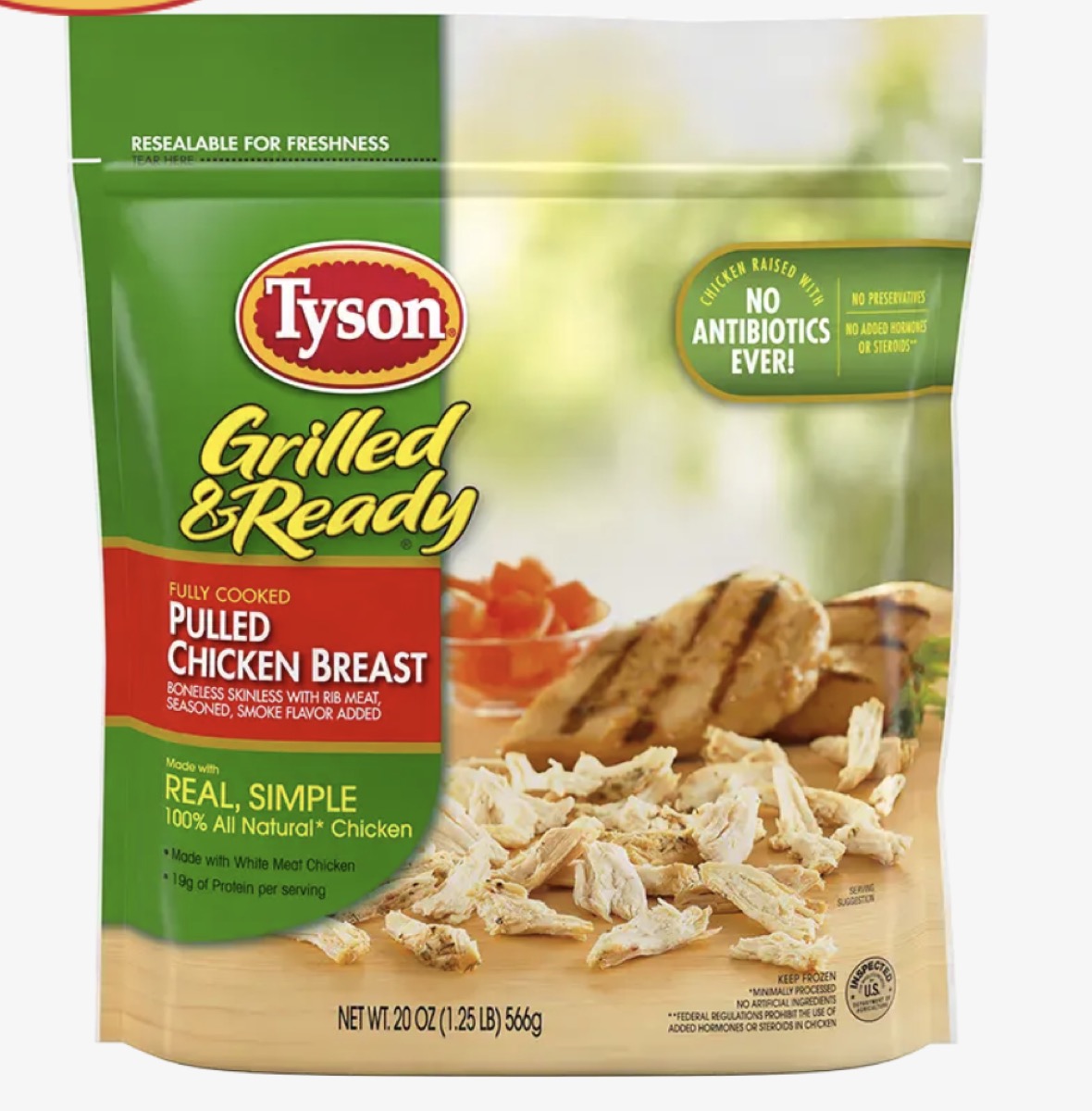If You Have This in Your Freezer, Throw It Out Immediately, USDA Warns

Many of us keep frozen food in the back of our freezer for nights when we’re in a pinch or could use a quick snack. You can go from a frozen food bag to a warm meal in mere minutes. If you have food from this popular chicken brand, however, you could be at risk of severe illness or worse. The U.S. Department of Agriculture (USDA) recently announced a recall of almost nine million pounds of food due to a risk of listeria. Read on to make sure you’re not reaching for any of these dangerous items.
RELATED: If You Use This to Make Coffee, Stop Immediately, Authorities Say.
Tyson recalled nearly nine million pounds of chicken products.

On July 8, the USDA’s Food Safety and Inspection Service announced a recall of approximately 8,955,296 pounds of ready-to-eat chicken products due to possible contamination with Listeria monocytogenes. The recall was first announced on July 3 with 8.5 million pounds of possibly contaminated food, and then 450,000 more pounds were tacked on after additional review.
According to the USDA statement, “These items were shipped nationwide to retailers and institutions, including hospitals, nursing facilities, restaurants, schools and Department of Defense locations.” The recall affects dozens of popular products, including chicken strips, diced chicken, and pizza with chicken on it. The products subject to recall have the number “EST. P-7089” on the product bag or inside the USDA mark of inspection. See the full list here.
RELATED: If You’re Eating This for Breakfast, Stop Immediately, Authorities Say.
There have been three cases of listeriosis linked to these recalled products.

Consumption of food contaminated with Listeria monocytogene can cause listeriosis. According to the Centers for Disease Control and Prevention (CDC), there have been at least three cases of listeriosis related to these Tyson products so far. The outbreak has already caused one death in Delaware, and two people fell ill in Texas. The CDC reports that an estimated 1,600 people in the U.S. get listeriosis each year, and about 260 die from the disease.
Symptoms of listeriosis include fever, muscle aches, and nausea.

According to the Mayo Clinic, symptoms of listeriosis can include fever, chills, muscle aches, nausea, and diarrhea. If the infection spreads to your nervous system, the Mayo Clinic says the symptoms can become more severe. These more intense symptoms include headache, stiff neck, confusion or changes in alertness, loss of balance, and convulsions. The Mayo Clinic advises that if you experience any of these symptoms, you should seek medical care.
According to the CDC, people with listeriosis usually report symptoms starting one to four weeks after consuming contaminated food, with some reporting symptoms as late as 70 days after exposure or as early as the same day of exposure.
RELATED: For more up-to-date information, sign up for our daily newsletter.
Some groups are more at risk of getting listeriosis.

According to the CDC, there are certain groups of people who are more commonly affected by listeriosis. The agency notes that older adults, people with weakened immune systems, pregnant women, and newborns are all at an increased risk of this illness. If you fall into one of these categories, you should take extra caution when consuming products that are at risk of hosting listeria.
RELATED: The FDA Is Pulling All Food Made by This Company From Shelves.